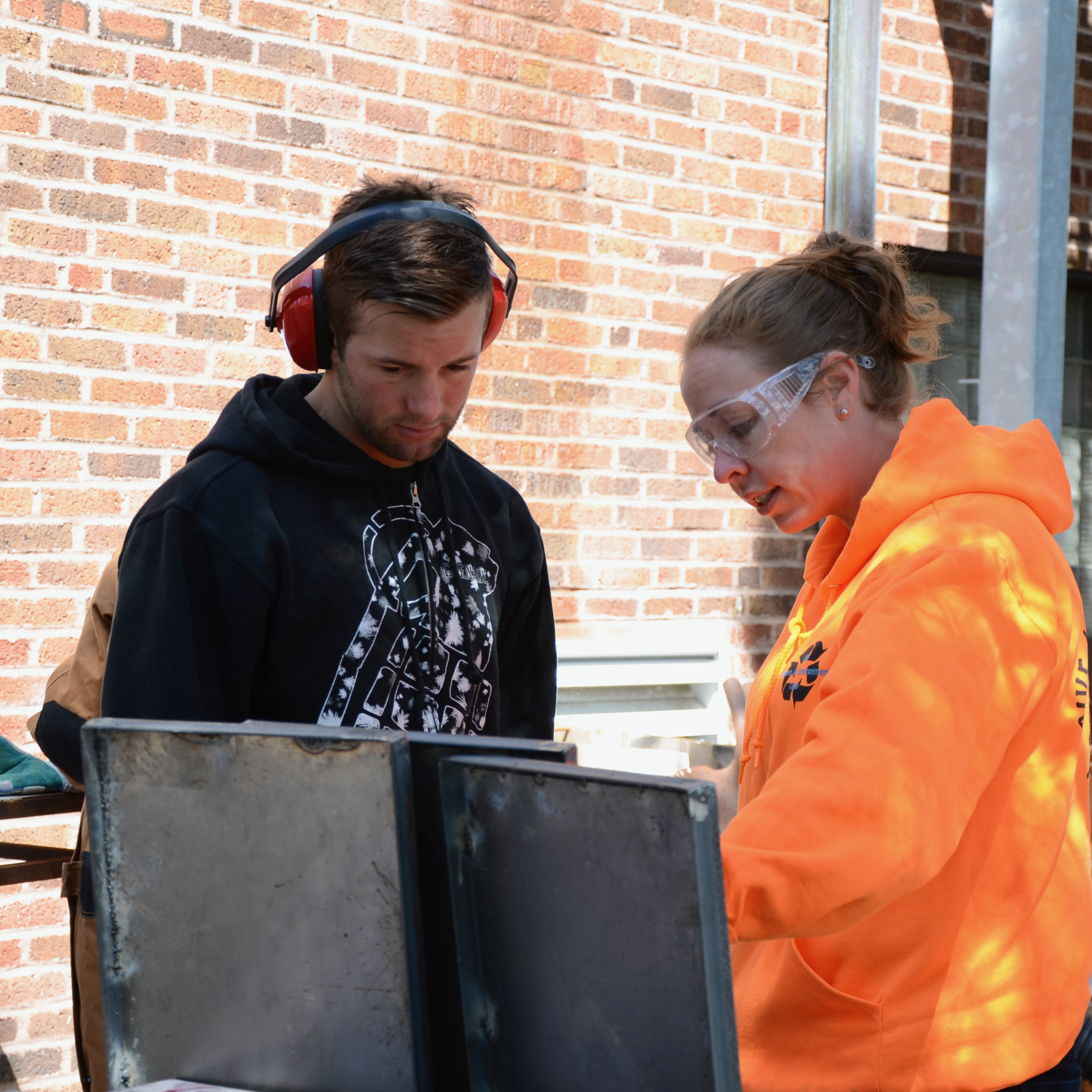The night before I spoke with Iowa-based artist and professor Elissa Wenthe, she coincidentally found her Individualized Education Program (or IEP) report in her office. “I’m trying to ‘Maria Kondo’ my life and declutter,” she said, looking around her messy office with a wide grin as she spoke to me via Skype. “Even though it doesn’t look like it right now.”
The IEP was the legal document that followed Wenthe through her entire experience with public education, setting the stage for accommodations, special education strategies and goals for her development. IEPs usually arise if a person’s learning is impeded by a disability. In Wenthe’s case, there were a few.
In the first grade, she was diagnosed with dyslexia and learning disabilities in math and reading. Year after year, she checked in with the doctors who diagnosed and tracked her disabilities. During her freshmen year of college, her doctor recommended she change her education plans based upon an assessment test result, essentially telling her to forget about attaining a four-year degree.
So much for that.
Not only did Wenthe finish her bachelor’s degree with a double major at the University of Minnesota, she completed her M.F.A. at Ohio University. Today she teaches art and art history courses at Upper Iowa University, a private college in northern Iowa.
“You get a chip on your shoulder because you’ve had these people who don’t know you as well as your parents or close teachers saying, ‘You’re not going to make it,'” Wenthe said. “I can’t imagine if I had a different personality, a more timid personality. If that were being told to me, I’d have listened to it.”
Wenthe didn’t go into the U’s College of Liberal Arts thinking she’d be an art major, but after a ceramics class at the end of her sophomore year, she was immediately hooked. “I ended up being that girl covered in clay walking across the bridge,” Wenthe said, recalling the long trek from the West Bank art building back to her Stadium Village apartment.
From that ceramics class, Wenthe said, she quickly determined her goal was an M.F.A. “I knew that I wanted to be an artist and one day I wanted to be a professor. And it just all happened,” she said.
This August, Wenthe will debut a new art installation exhibition at Northwestern University. “I typically like to show at universities. I’m a firm believer in education, and I like presenting my artwork through the education realm,” Wenthe said.
Former Disability Resource Center assistant director Betty Benson worked with Wenthe from her freshman year onward, and she still recalls their time together despite the 14 years that have passed since Wenthe’s graduation. “She has an incredible drive that has carried her over a number of hurdles,” Benson said, adding that’s the same energy she saw come through in Wenthe’s artwork. Yet Wenthe remained humble.
Benson always hopes the students she works with go into their fields of interest with more empathy and understanding, and according to her, “that absolutely happened” with Wenthe. “I even get a little choked up talking about it.”
While Wenthe certainly has empathy with her students, she makes sure she’s not a pushover. Having a learning disability often means you need to work harder, Wenthe said, but she still wants to push her students to do their best. She wants to be someone they can talk to, which means being open with her classes about her struggles.
For instance, sometimes when Wenthe is quickly writing chemical formulas for clay on the chalkboard, she’ll mix up her i’s and e’s or b’s and d’s, and her class will call her out on it. “So, I acknowledge my weaknesses,” she said.
“When I was in high school, I always hid it. I tried to pretend it didn’t exist or tried to prove myself in ways other than that. But as I’ve gotten older, especially now that I’m faculty, I try to be more of an advocate. It’s okay to acknowledge your weaknesses. You just have to understand how to overcome them or seek the help when you need it.”
Upper Iowa University where she teaches has 900 students on campus—25 of them are art majors. It’s the type of campus where everyone knows each other’s names, and Wenthe will host students at her house for dinner.
“I get to know my kids very well,” Wenthe said, before then hesitating. “They’re not kids. They’re students. I get to know my students very well. You can make a difference pretty quickly, and I like that.”
Correction: An earlier version of this article misattributed quotes from former Associate Director of Disability Services Betty Benson to current DRC director Donna Johnson. The article has been updated to reflect these changes.

